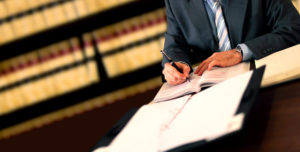Divorce Law and Ethics

During a divorce, you know you can rely on your attorney to act ethically and to conduct themselves professionally. What does that really mean, though? Some people may lump lawyers in with car salesmen: they work with them because it is a means to an end. However, this is not giving your divorce attorney the benefit of the doubt. Not only are they there to protect your best interests, they are there to ensure the proper legal measures are followed so that when you go through with your divorce it is legally binding. If you are concerned about whether attorneys follow a code of ethics, you should know that attorneys work under the ethics code set in place by the State Bar Association.
What kinds of ethical dilemmas may come up in a divorce case?
You may be wondering what kinds of ethical dilemmas can come up with when you work with an attorney on your divorce case.
- Conflicts of interest. If your attorney already has a client they are representing that could cause a conflict of interest in your divorce case, they should excuse themselves from being your attorney. A common example (especially in divorce cases) is if the attorney represents your spouse.
- Falsifying evidence. When you bring a divorce petition to your spouse, you may have very good reasons or you may simply wish to be out of the relationship. Whatever your reasons are, you cannot ask your attorney to falsify evidence against your spouse so that you can get the result you want.
- Your attorney talks with your spouse. Many people get attorney referrals from spouses, friends, and family members. However, even if your divorce attorney is friends with your spouse or has spoken with your spouse before, they are not supposed to speak with them about any information that could be relevant to your divorce case.
- Your attorney is unresponsive. While this may not seem like an outright ethical dilemma, it is your divorce attorney’s job to be prepared for your case and to respond to your concerns. You should not have to continue hounding your attorney for a reply.
There are many ethical issues that may come up during a divorce case and it is up to your attorney to follow the standards set in place. You should feel completely confident in the fact that your attorney is following the rules and is representing you to the best of their ability while they are on your side throughout your divorce.
For more information about ethical issues, contact a divorce attorney from Divorce Lawyer Chronicles today.
